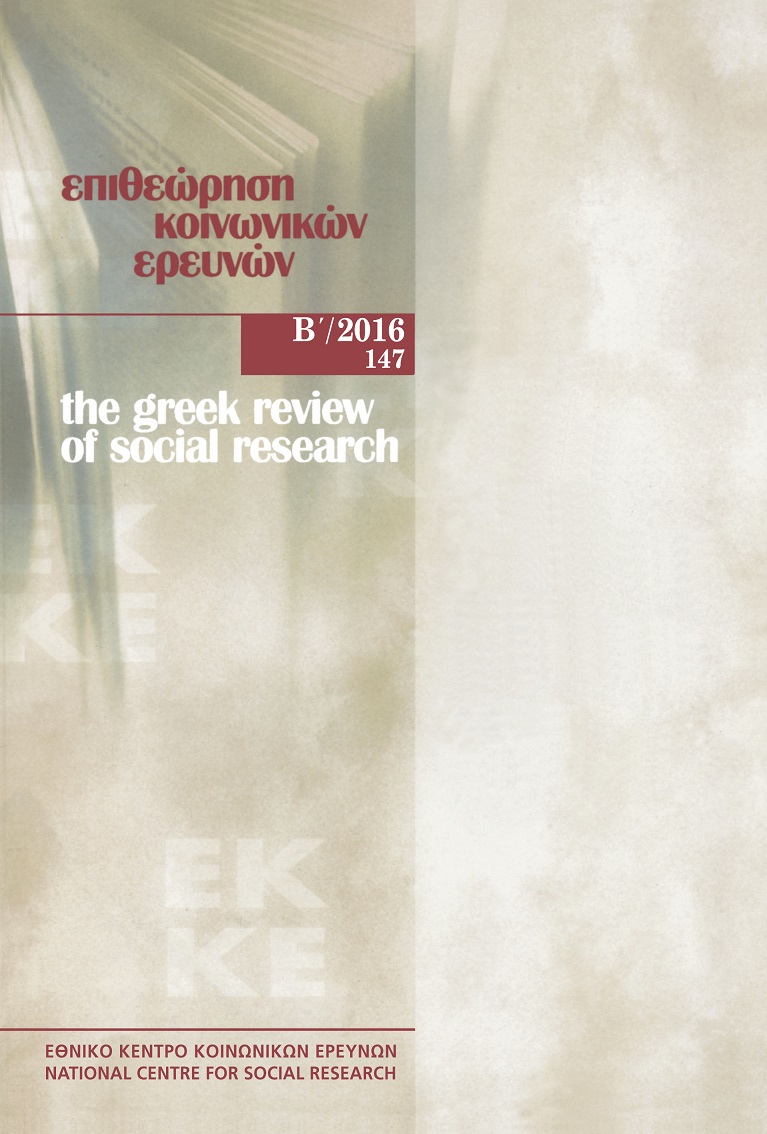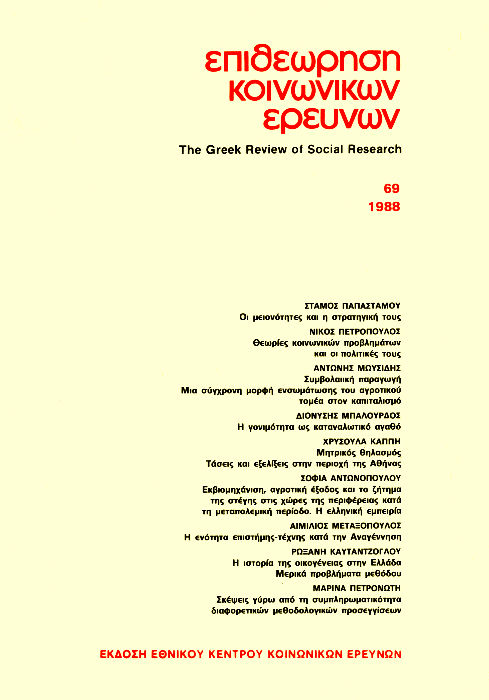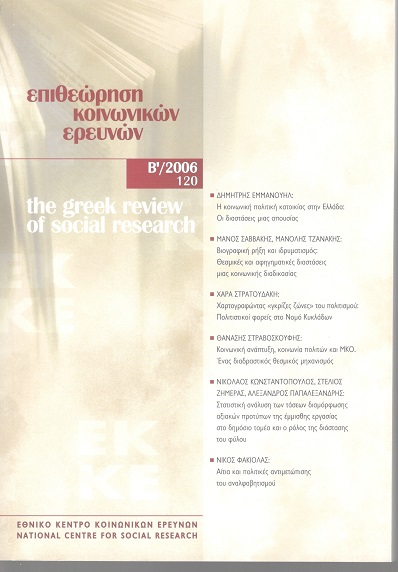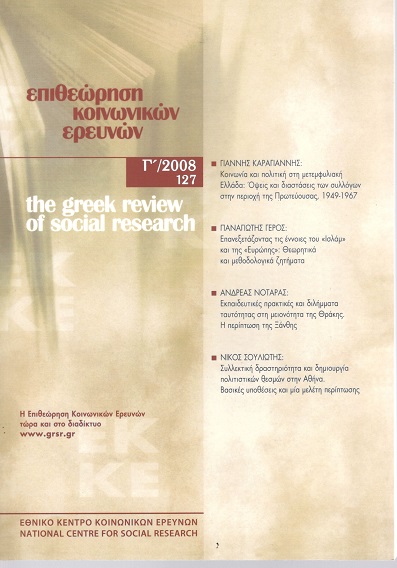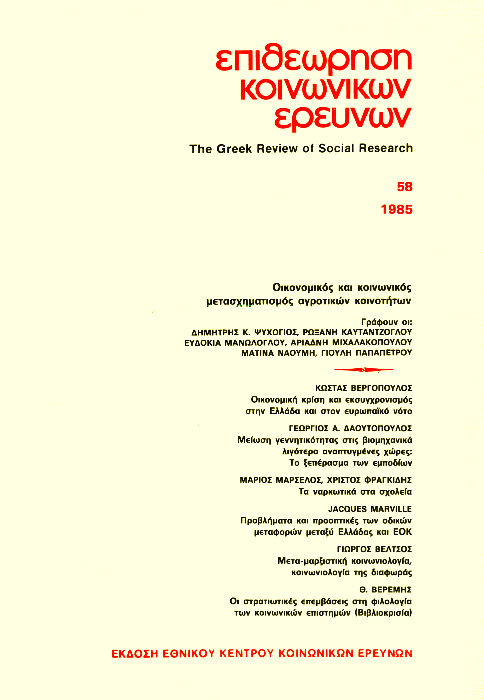Introduction: Social classes and cultural consumption - –a highly contested relationship
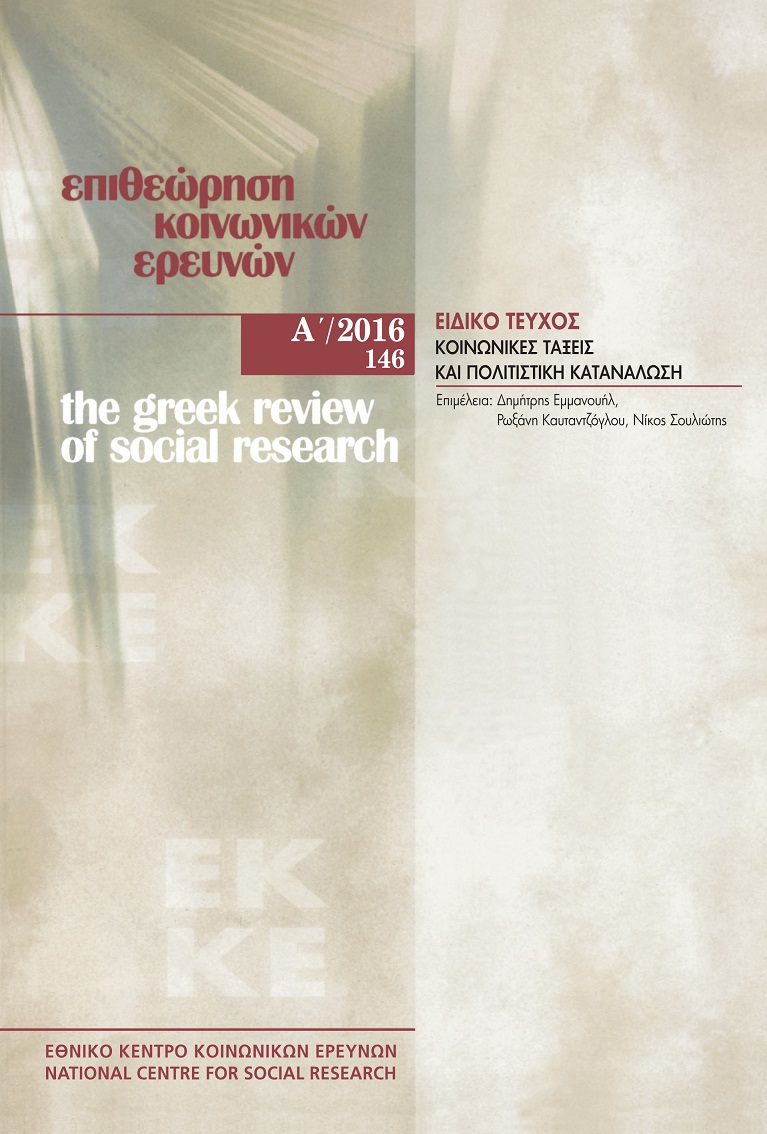
Abstract
The articles in this special issue present the main findings and theoretical conclusions of an empirical research conducted in Athens in 2013 on the relationship between social stratification and cultural consumption in the fields of music, cinema, theater and dance. The introduction outlines the context of the approaches, arguments and basic theoretical concepts and hypotheses that directed the research. The first part considers the different approaches to social stratification and stresses the importance of the neo-weberian distinction between economic class and social status. The second part reviews the main sociological theories on the broad social divisions of cultural consumption since Bourdieu's Distinction. The third part, which completes the introduction, presents the main methodological issues that empirical research in this field confronts, especially decisions concerning the range of cultural activities recorded and the relative importance of practices, preferences and modes of perception and apprehension of cultural goods in the analysis of cultural consumption.
Article Details
- How to Cite
-
Εμμανουήλ Δ., Καυταντζόγλου Ρ., & Σουλιώτης Ν. (2016). Introduction: Social classes and cultural consumption - –a highly contested relationship. The Greek Review of Social Research, 146, 3–37. https://doi.org/10.12681/grsr.10642
- Section
- Articles

This work is licensed under a Creative Commons Attribution-NonCommercial 4.0 International License.
Authors who publish with this journal agree to the following terms:
- Authors retain copyright and grant the journal right of first publication with the work simultaneously licensed under a Creative Commons Attribution Non-Commercial License that allows others to share the work with an acknowledgement of the work's authorship and initial publication in this journal.
- Authors are able to enter into separate, additional contractual arrangements for the non-exclusive distribution of the journal's published version of the work (e.g. post it to an institutional repository or publish it in a book), with an acknowledgement of its initial publication in this journal.
- Authors are permitted and encouraged to post their work online (preferably in institutional repositories or on their website) prior to and during the submission process, as it can lead to productive exchanges, as well as earlier and greater citation of published work (See The Effect of Open Access).



